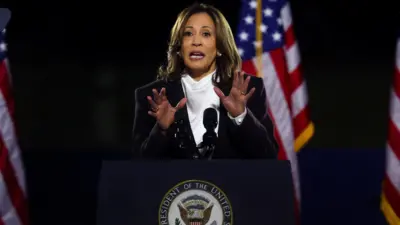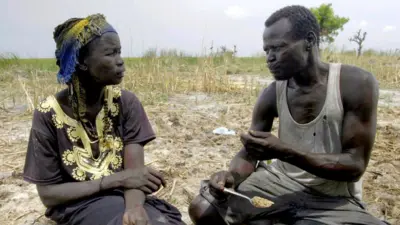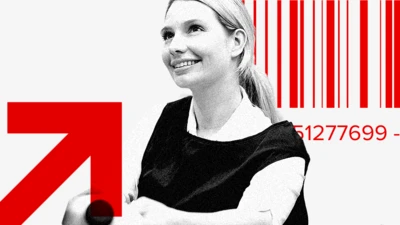We've updated our Privacy and Cookies Policy
We've made some important changes to our Privacy and Cookies Policy and we want you to know what this means for you and your data.
Welfare pledge to cut child poverty by 350,000
- Author, Hannah Richardson
- Role, В鶹№ЩНшКЧТіИлїЪ News education and family reporter
Some 350,000 children will be lifted out of poverty as a result of a single change to the benefit system, the government has said.
Replacing six benefits with the Universal Credit would help lift families out of the "vicious cycle of poverty and dependency", it said.
It also said it would to take 200,000 children out of the severest poverty.
Charities warn benefit changes will put a huge strain on disadvantaged children.
The promises comes in England's newly published child poverty strategy.
Launching the strategy, which cuts across three government departments, Work and Pensions Secretary Iain Duncan Smith said: "The legacy of worklessness and benefit dependency is that too many families feel outside of society with no expectation that will change for them or their children.
"The benefit system has trapped people into this depressing cycle. Factors like family breakdown, educational failure, debt and addiction further entrench such disenfranchisement.
'Radical transformation'
"Pouring money into a broken welfare system has only served to have a perverse impact on child poverty.
"From now on we will make sure people are able to work themselves and their families out of poverty and reward those who do the right thing.
"Our reforms will move 350,000 children and 500,000 adults out of poverty instantly and the dynamic impact will change Britain for generations - a change we cannot wait any longer for."
But the Institute of Fiscal Studies predicted back in December that the welfare shake-up would increase relative child poverty figures by 200,000 in 2012-13 and 2013-14.
The universal credit, which requires claimants to be seeking work, also introduces tough new sanctions for those who refuse work.
The implementation, from October 2013, is projected to take four years but some say it could take as long as a decade to come into effect fully.
The latest figures on relative child poverty relate to 2008-09. They show that 2.8 million, or 22%, of children were living in relative poverty in the UK.
This is defined as children living in homes with an income of 60% less than the median UK income, before housing costs.
The Child Poverty Act commits the government to cut this measure of poverty to 10% by 2020.
'Sure Start cuts'
The strategy, published on Tuesday, retains this income target but also adopts a new wider approach to measuring disadvantage.
It will work on setting a new indicator on children's life chances.
It says the government will tackle worklessness and educational failure, through "radical transformation of public services and the welfare state".
And a new social mobility and child poverty commission is being set up to hold the government to account.
It also pledges a greater emphasis on early intervention and on whole-family, whole life-course approaches.
As expected, the child poverty strategy points to measures already being taken rather than unveiling new policies.
It points to its polices for raising educational achievement among the most deprive groups, such as the funding for nursery places for deprived two-year-olds and giving extra money to schools for taking poor pupils through the pupil premium.
It also highlights the need for universal services and the end of stigmatised services aimed at the deprived.
Chief executive of Family Action Helen Dent said she welcomed the emphasis on early years as a step towards addressing social mobility and child poverty.
She added: "Sure Start cuts and welfare and tax changes coming in tomorrow will put huge strain on disadvantaged families particularly those with babies and young children.
"Some babies will literally be born broke as a result of measures this Government has introduced."
Children's Commissioner Dr Maggie Atkinson said: "Many children in the UK are extremely fortunate, our recent research also reveals some young people are worried about living in a cycle of poverty due to the current high rate of unemployment, the prevalence of low paid jobs and income freezes."
'False premise'
Charities including the Child Poverty Action Group and Barnardo's say the government is in danger of taking a backward step in the fight to end child poverty.
Head of Child Poverty Action Group Alison Garnham said the 'strategy' started from a false premise, suggesting that the last decade made no progress and did not address worklessness.
"In fact there's been a downward trend for child poverty in workless households, but an upward trend for in-work poverty, which is now the larger problem.
"Although we finally have a document that tells us what the government plans to do, it appears to do very little.
"Taken together with the social mobility strategy it is hard to see how they will have any traction on the major problem of child poverty we face."
Barnardo's chief executive Anne Marie Carrie said she was concerned the measures in place would not be sufficient in bringing about the biggest fall in child poverty on record.
"We are uneasy that there are no indications of any interim goals or a clear trajectory setting out how the legal requirement to end child poverty will be reached by 2020."
Top Stories
More to explore
Most read
Content is not available








